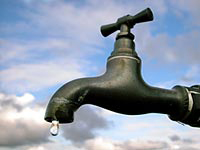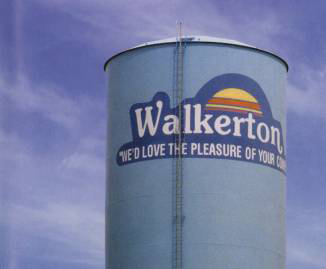
Ulli Diemer — Radical Digressions
Articles Lists
- Selected Articles
- Articles in English
- Articles in French
- Articles in Spanish
- Articles in German
- Articles in Other Languages
- Articles A-Z
- RSS feed
- Subject Index
Selected Topics
- Alternative Media
- Anarchism
- Bullshit
- Capital Punishment
- Censorship
- Chess
- Civil Liberties
- Collective Memory
- Community Organizing
- Consensus Decision-making
- Democratization
- Double Standards
- Drinking Water
- Free Speech
- Guilt
- Health Care
- History
- Identity Politics
- Interviews & Conversations
- Israel/Palestine
- Libertarian Socialism
- Marxism
- Men’s Issues
- Moments
- Monogamy
- Neo-Liberalism
- New Democratic Party (NDP)
- Political Humour/Satire
- Public Safety
- Safe Spaces
- Self-Determination
- Socialism
- Spam
- Revolution
- Trotskyism
Blogs & Notes
- Latest Post
- Notebook 11
- Notebook 10
- Notebook 9
- Notebook 8
- Notebook 7
- Notebook 6
- Notebook 5
- Notebook 4
- Notebook 3
- Notebook 2
- Notebook 1
Compilations & Resources
- Connexions
- Other Voices newsletter
- Seeds of Fire
- Alternative Media List
- Manifestos & Visions
- Marxism page
- Socialism page
- Organizing Resources
- People’s History, Memory, Archives
- Connexions Quotations page
- Sources
- What I’ve been reading
- What I’ve been watching
Words of Wisdom
- The emancipation of the working classes must be conquered by the working classes themselves.
- – Karl Marx

Snippets
The trouble with science, when carried out conscientiously in accordance with the principles of rational inquiry, is that it may produce evidence and conclusions that run counter to the interests of the powerful and the rich.
Science and its enemies
It is a defining characteristic of almost all bodies that wield power – governments, public agencies, courts, police, corporations – that they view the people they ostensibly serve as the enemy.
Secrecy and power
Contamination:
The Poisonous Legacy
of Ontario's Environmental Cutbacks
By Ulli Diemer
This is a story about fanaticism and death.
The dead are buried in fresh graves in the cemeteries of Walkerton, Ontario. The fanatics are very much alive, going about their daily business in the Premier's office and the cabinet room in Queen's Park, the seat of Ontario's government.
Investigators are still working to determine exactly how deadly E. coli 0157 bacteria found their way into Walkerton's water in May, causing at least seven and perhaps 11 deaths, and leaving hundreds seriously ill.

The story of the Walkerton tragedy is not, however, primarily a
story about Walkerton at all. This was no unforeseen accident. It
was the predictable - and predicted - result of deliberate policy
decisions which gravely compromised the safety of Ontario's drinking
water.
The broader story of Walkerton is the story of repeated warnings,
from many different experts, officials, and agencies, that the Harris
government's environmental cutbacks were putting public health in
jeopardy. And it is the story of how those warnings were dismissed
or ignored.
Step by step, a disaster was being prepared. The only question was
where, and when, it would happen. Unluckily for Walkerton's citizens,
it was in their town that the system broke down, with fatal results.
To understand how a government could utterly ignore, over a period
of five years, the warnings of its own environmental experts, it
is necessary to know the mentality of the Harris government, a highly
centralized administration where all important decisions are made
by Premier Mike Harris and a small group of militantly ideological
advisors, and where all outside input is scorned.
This is a government which prides itself on "making unpopular
decisions," on never compromising, on never changing course.
The man in charge, Mike Harris, is as determined as the captain
of the Titanic, disdainfully brushing off ridiculous warnings of
icebergs and giving orders to push on, full steam ahead.
The chain of events begins in June 1995, when Harris's Progressive
Conservatives take office, and start ramming through their "Common
Sense Revolution." The phrase was concocted by the party's
election strategists, but it captures perfectly the attitudes of
Harris and his inner circle: The private sector can do everything
better. That's a fact. That's common sense. Obviously, then, anything
which interferes with the private sector - environmental regulations
enforced by busy-body inspectors, for example - is nonsense and
needs to be dismantled. You don't need public input or so-called
"expert" advice to figure that out.
Armed with these certainties, the Tories set out to slash Ontario's
"bloated" public services and "red tape."
Environmental programs and agencies are attacked with particular
savagery. The Ministry of the Environment loses 42% of its budget.
Front-line staff, charged with monitoring, testing, inspection,
enforcement, and research, are decimated: 900 of 2,400 front-line
staff are laid off. Regional offices are closed. Environmental agencies
set up over the years to respond to complex environmental problems
are dismantled in days. What remains of the Ministry is in total
disarray. Similar cuts hit other ministries, including Natural Resources
and Agriculture.
A number of industries formerly regulated by the government are
told they can now regulate their own environmental performance.
The act establishing "self-regulation" for the aggregates
industry is a model. "Monitoring" consists of general
questions on checklist-style forms which companies are asked to
fill in every now and then and mail to the government. Just in case
the message - nudge, nudge, wink, wink - isn't clear enough yet,
compliance is based on the "honour system." Under the
legislation, it is not an offence for a company to submit false
information.
Not content with the environmental chaos it has already succeeded
in bringing about, the government quickly turns its attention to
water quality issues, an area still burdened by excessive red tape.
Ontario's contribution to the Great Lakes Clean-up effort is cancelled.
The "Water and Sewage Services Improvement Act" is passed.
(No piece of legislation is allowed to leave the cabinet office
before it has acquired a suitably Orwellian title.) The "improvement"
consists of shutting down the provincial government's water testing
labs, downloading control of provincially owned water and sewage
plants to the municipalities, eliminating funding for municipal
water utilities, and ending the provincial Drinking Water Surveillance
Program, under which the Ministry of the Environment had monitored
drinking water across the province.
The Act also serves to pave the way for the privatization of municipal
water systems by making the municipalities responsible for future
capital costs which many will not have the resources to assume,
thus making them takeover targets for private corporations.
Increasing the pressure on municipalities to privatize their water
systems, David Lindsay, a senior Harris advisor who now heads the
provinces SuperBuild fund for infrastructure projects, makes it
clear that infrastructure money will only be spent on projects to
aid "economic development," not to renew and repair water
and sewage systems.
The Tories' model is the United Kingdom, where Margaret Thatcher
privatized water services in 1989. Water-related illnesses soared
(Hepatitis A by 200%, Dysentery by 600%), but, more importantly,
company profits and their executives' remuneration increased even
more spectacularly.
The mantra of the privatization fanatics is the same on both sides
of the ocean: you can't makes omelettes without breaking a few eggs.
In the midst of the upheaval, there are many voices trying to warn the government of the dangers of what it is doing.
Environmental organizations prepare earnest briefs arguing against
the cutbacks. Their concerns are dismissed out of hand. For the
leaders of the Common Sense Revolution, arguments in favour of clean
water or environmental preservation are the pleadings of "special
interest groups."
The Provincial Ombudsman issues an urgent report saying that cutbacks
have been so damaging that the government is no longer capable of
providing the services which it is mandated to provide.
The Provincial Auditor, in his annual reports, criticizes the Ministry
of the Environment for deficient monitoring of groundwater resources
and for failing to audit small water plants across the province.
The International Joint Commission states its concern about Ontario's
neglect of water quality issues.
The Environmental Commissioner of Ontario (an arms-length environmental
ombudsman) says that the government is compromising environmental
protection, pointing specifically to the testing of drinking water
as an area of concern.
Other events underscore these warnings.
In the spring of 1996, hundreds of people in Collingwood, an hour's
drive from Walkerton, become ill after cryptosporidium, a parasite
linked to animal feces, contaminates the drinking water. No one
dies, but it is a clear signal that Ontario's water monitoring system
is faltering.
In Japan, also in 1996, 13 children die and 20,000 fall ill with
E. coli after eating sprouts grown in water contaminated by cattle
manure. It is a stark warning of the dangerous link between livestock
and water contamination.
The livestock-E. coli-water contamination link, in particular, is
being looked at with increasing concern by scientists. Studies show
that cattle manure is responsible for E. coli contamination of water
and food in the United States, the United Kingdom, and Argentina.
A Health Canada study says that the cattle counties of Southwestern
Ontario, where Walkerton is located, are high-risk areas for E.
coli infections. It shows that there is a direct link between cattle
density and E. coli infection. The report also shows that 32 per
cent of the wells in rural Ontario show fecal contamination.
The Harris government takes its own action on the E. coli problem
in 1996. It decides to snip another piece of useless red tape, and
drops E. coli testing from its Drinking Water Surveillance Program.
This, however, is only an interim step. The following year, it shuts
down the Drinking Water Surveillance Program entirely. It further
directs ministry staff not to enforce dozens of environmental laws
and regulations still on the books. Farm operators, in particular,
are to be treated with understanding if they are discovered to be
in violation of livestock and waste-water regulations.
Environment Ministry officials, deeply concerned, warn the government
again in 1997 that closing the water testing program will endanger
public health. Their concerns are dismissed as the self-interested
exaggerations of empire-building civil servants.
Also in 1997, however, senior officials in the Environment Ministry
draft another memo which the government does heed. This memo warns
that cutbacks have impaired the Ministry's ability to enforce environmental
regulations to the point that the Ministry could be exposed to lawsuits
for negligence if and when things go wrong.
The government's response is two-fold.
It holds a meeting of Ministry staff to discuss how to protect itself
from liability if and when an environmental catastrophe occurs.
And it passes Bill 57, "The Environmental Approvals Improvement
Act," which, among other improvements, prohibits legal action
against the government by anyone adversely affected by the Environment
Minister's failure to apply environmental regulations.

Walkerton sits in the heart of Ontario's Bruce County, where environmental
regulations - or the lack of them - governing livestock production
have a very direct impact. The county, with a population of only
60,000 people, is home to 163,000 beef cattle and 100,000 hogs.
The animal population produces as much waste as 1.6 million people.
But whereas even two people living on a farm are required to have
a functioning septic system, there are no comparable requirements
for factory farms, where a single 1,200-head hog operation can produce
as much waste as 60,000 people. All of this waste is spread on the
adjacent fields, a practice that was perhaps sustainable when farms
typically produced 50 or 60 animals at a time, but is utterly unsustainable
when feedlots hold 10 or 20 times that number. The fields can't
absorb such massive quantities of manure, so inevitably serious
contamination of the groundwater and surrounding watercourses results.
The associated health risks are well known. Dr. Murray McQuigge,
the Medical Officer of Health for Bruce-Grey-Owen Sound raises the
issue forcefully in September 1999. He warns in a memo to local
authorities that "in large farm productions that require large
use of antibiotics, there are increasing concerns about the production
of antibiotic-resistant bacteria. Studies have shown that such antibiotic-resistant
bacteria spread into the immediate farm family and from there into
the community." He adds that locally there is increasing concern
"that poor nutrient management on farms is leading to degradation
of the quality of ground water, streams and lakes."
As time goes on, staff at the Environment Ministry's Water Policy
Branch become more and more concerned about the safety of Ontario's
drinking water. In January 2000, they submit another report to the
government, warning that "Not monitoring drinking-water quality
is a serious concern for the ministry in view of its mandate to
protect public health." The report states that a number of
smaller municipalities are not up to the job of monitoring the quality
of their drinking water. It further warns that because of the privatization
of the testing labs, there is no longer a mechanism to ensure that
the Ministry, and the local Medical Officer of Health, are informed
if problems are detected in local water systems.
The Harris government ignores the report.
Walkerton is the place where the system finally falls apart.
Walkerton's drinking water system receives its last Ministry inspection
in February 1998. The inspection shows that there have been problems
with the water supply for years, including the detection of E. coli
in the system. The Ministry outlines improvements that should be
made - but, desperately short of inspection staff, and faced with
small water systems across the province which aren't meeting standards,
it never schedules a follow-up inspection to see if the improvements
are in fact being carried out.
By June 1998, Walkerton town council is concerned enough about the
situation to send a letter directly to Premier Mike Harris, appealing for the province to resume testing
of municipal water.
There is no reply.
Between January and April of 2000, the lab which tests Walkerton's
water repeatedly detects coliform bacteria - an indication that
surface water is getting into the water supply. The lab notifies
the Ministry of the Environment about its findings on five separate
occasions. The Ministry phones the Walkerton Public Utilities Commission,
is assured the problems are being fixed, and lets it go at that.
The Ministry fails to inform the Medical Officer of Health, as by
law it is required to do.
In early May, Walkerton starts using a new lab, A & L Canada
Laboratories East, to test its water. This is the lab which discovers
the E. coli 0157 contamination on May 16. It communicates its findings
to the Walkerton Public Utilities Commission, but does not inform
the Environment Ministry, though provincial guidelines state it
must do so. Asked why the lab failed to report the E. coli contamination
to the Ministry, lab spokesman Gabriel Farkas said that the lab
considers test results confidential intellectual property. "To
send them to anyone other than the client would violate the basic
principle of confidentiality" said Mr. Farkas.
Apparently unaware of how serious the problem is, the manager of
the Walkerton utility covers up the fact that the water is contaminated,
and tries to fix the problem himself. Several days go by before
Dr. Murray McQuigge, the Medical Officer of Health, discovers the
truth and blows the whistle. By that time, hundreds of people have
been exposed to the deadly contamination.
The Walkerton story is the story of how systems which were established
to protect public health were deliberately dismantled by a government
driven by a fanatical hatred of the public sector. In the name of
eliminating "environmental red tape," a water protection
system designed with multiple safeguards to protect against a failure
at any one point or by any one person was undermined until it could
no longer function, despite the clearest possible warnings of the
foreseeable consequences.
The Walkerton story is the logical result of the "Common Sense
Revolution." It may also yet be the story of
the undoing of the government responsible.
Ulli Diemer is a landowner in the Walkerton area.
Written June 2000. This article first appeared in the July-August
2000 issue of Canadian
Dimension and was reprinted and reproduced in a number
of formats and publications, including Alien Invasion: How the
Harris Tories Mismanaged Ontario, edited by Ruth Cohen, published
by Insomniac Press.
Aussi disponible en français: Contamination: L ’Héritage Vénéneux des coupures écologiques
de l'Ontario.
También disponible en español: Contaminación:
El envenenante legado de los recortes ambientales de Ontario.
Also available in Japanese: Contamination: The poisonous legacy of Ontario ’s environmental cutbacks.
For links about Walkerton and water safety issues see the links page on the Connexions
site.
See also Ulli Diemer’s article Abandoning
the Public Interest, about the undermining of public safety standards internationally.
Subject Headings: Cutbacks - Drinking Water - Drinking Water Protection - Environment & Agriculture - Environment & Health - Environmental Emergencies - Environmental Impact/Animal Industry - Environmental Legislation - Environmental Monitoring - Environmental Protection - Neoconservativism - Ontario Government - Walkerton, Ontario - Water Safety